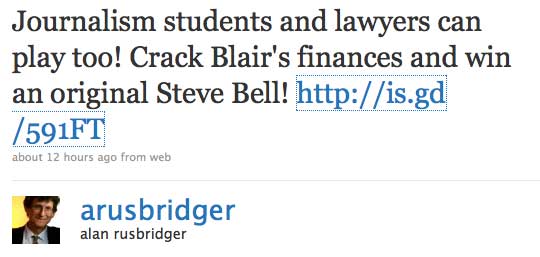Fascinating post from journalist Willard Foxton, until recently in charge of investigative title Chambers Report, on how the threat of libel caused him to lose his job.
Foxton ran a story on a Middle East branch of a British law firm, whose expansion had gone ‘catastrophically’ wrong. Despite countless interviews, multiple sources and an acceptance of truth from the firm, the title was still issued with a writ by the individual at the centre of the story – the only person Foxton had not asked if it was true (as part of the Reynolds defence) for fear of an injunction against publication.
“[I]n this case, the evidence was so strong (right down to senior people referring off the record to this individual as ‘the worst person we have ever hired’), I felt totally confident that we were safe,” writes Foxton.
“I was wrong. Really, really quite wrong.”
The cost of defending the legal action – and the potential cost of losing – were too much for the publisher: the magazine was closed and Foxton fired.
“It’s not just the publisher who could get sued either – because of the state of our libel laws, our distributors, our internet host, everyone even connected to us or the toxic-but-true article could be sued.
“He [my employer] sat me down in his office, told me he respected me as a journalist – respected me so much, in fact that he wants me to keep writing for his publishing firm – but said that libel scared him far too much to take risks.
“So there you go. A rich man in the emirates launches a libel writ against a UK publication for writing true things, and the publication gets shut down. I lost my job; the journalist who wrote the story received a written warning about his conduct. Why? Because we uncovered and exposed the truth.”
Full post at this link…
